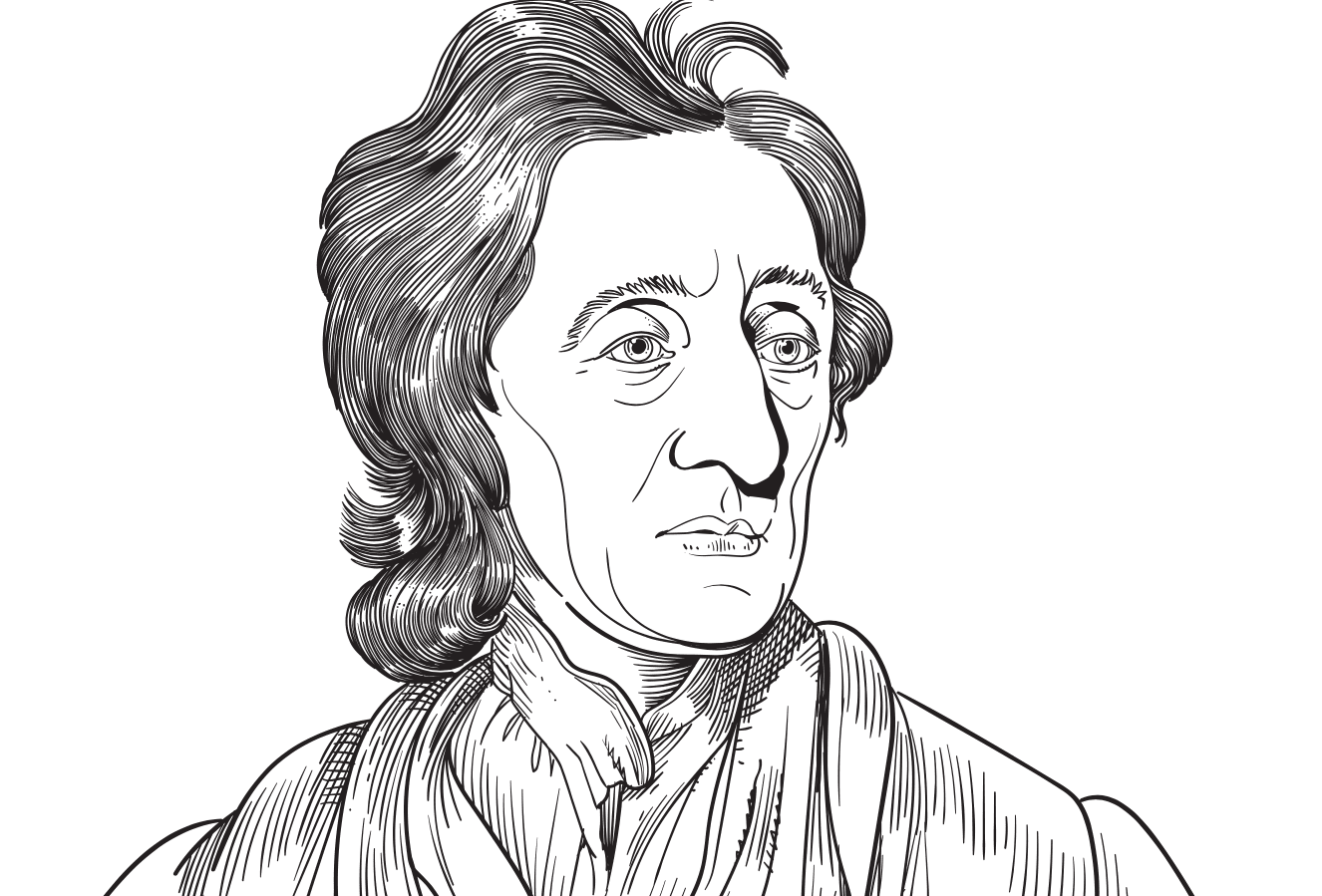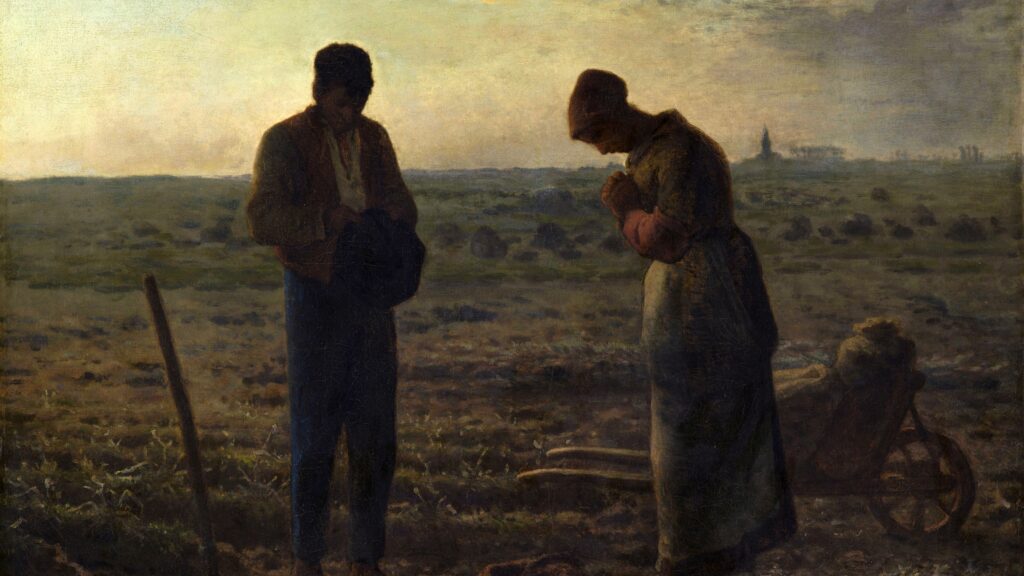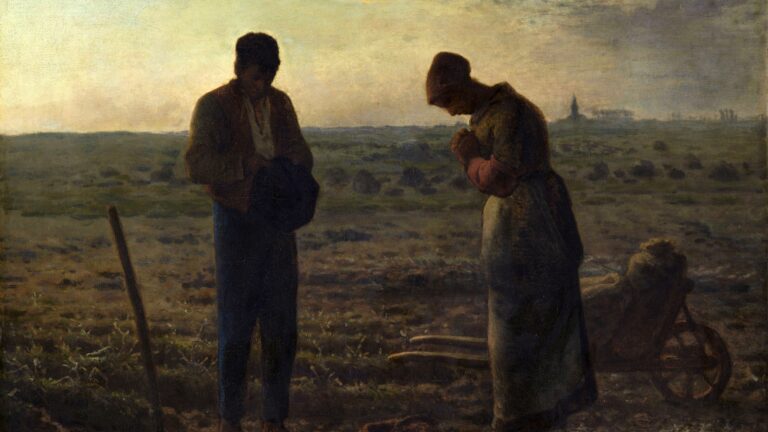‘We hold these truths to be self-evident, that all men are created equal, and are endowed by their Creator with certain unalienable Rights, that among these are Life, Liberty, and the pursuit of Happiness.’[1]
Such were the words authored by Thomas Jefferson in the United States ‘Declaration of Independence’. In what was the first official government document to acknowledge man’s natural rights emanating from God, the ‘Declaration’ became the bulwark of our liberty from tyranny and our freedom to exercise our God-given capacities.
Derived from the Laws of Nature and of Nature’s God, i.e., from the natural law and divine Revelation,[2] the American Founding Fathers created a government that would place natural rights, distinct from human rights, at the forefront of the individual’s dignity. And it was the British philosopher John Locke (1632–1704) who was the principle point of reference whereby the natural law would be translated into natural rights. He is historically considered to have laid the foundation for a fully liberal order that includes representative and limited government, and that guarantees basic civil liberties.
Locke, a fervent Protestant, saw the chaotic civil war which sought to overthrow the restored Catholic Crown with James II (1603–1701) in England. After being forced to flee to Holland for taking a small part in the failed insurrection of James, he returned to his native homeland during the Glorious Revolution (1688–1689) when the Protestant William and his wife Mary were installed as King and Queen. Refuting the notion that governments develop organically as envisioned by ancient theory of idealisation and exultation of custom or absolutism, he favoured a rule of law grounded on the people’s consent.
Since the state of human nature was in a condition without civil authority, sovereignty had to reside in the people
It was Locke’s philosophy, the Laws of Nature and Nature’s God, that appealed for social equality and the negation of social class distinctions that were primarily absent at the time. Since the state of human nature—that original condition in which each individual had an equal right to use natural resources provided by the ‘spontaneous hand of Nature’—was in a condition without civil authority, sovereignty had to reside in the people.
According to Locke, in the ‘natural state’ no one had ‘a private Dominion, exclusive of the rest of Mankind’, over those resources. However, such resources would have been useless for man’s survival and well‐being unless they could be appropriated by individuals for their personal use. Subsequently, he advocated a limited form government, so long as its citizens consent to it.
Locke’s Law of Nature and Nature’s God
Locke broke away from the classical concept of the natural law in that man could decipher between right and wrong as a knowledge written in his heart. Instead, the Laws of Nature and Nature’s God would be identified as God’s moral legislation inscribed in the heart of man. This is because man himself is by nature unable to know the divine moral directives such as doing good unto others.[3]
Locke united both notions together with the phrases ‘the law of God and nature’ and ‘the laws of nature and of God,’ which he used interchangeably. The law of nature was God’s general revelation which He legislated in creation itself and supernaturally inscribed in man’s conscience.[4] In this, Locke relied on the ideas of the sixteenth-century theologian Richard Hooker (1554–1600).
Hooker taught that general revelation and special revelation—the former was God’s revelation in nature; the latter was His revelation in Scripture—are the two means of knowing God’s moral law. All human law must agree with these to be valid.’[5] And from this the individual would discover that God had endowed those certain unalienable rights that had been denied to him by monarchies and like-minded governments.
For Locke, the main obstacle in any government is ‘the inadequate regulation of property in the broad sense: the right to “life, liberty and estate”.’[6]
He did not, however, advocate the theory of self-preservation as Thomas Hobbes did before him, whereby citizens of a given country willingly forfeit their rights to the head of government for the sake of peace. Yet, there was still a need for political authority, i.e., a centralised government to ensure that our inalienable rights could to be protected.
Hence, the purpose is not the concern with the good of souls or their concernments in another life but the entrusting delegation of power for the quiet and comfortable living of in society
Such reasoning helped create a need for an established government composed of proprietors, one that permits individuals to appropriate, and exercise control rights over, things in the world, such as land and other material resources. Hence, the purpose is not the concern with the good of souls or their concernments in another life but the entrusting delegation of power for the quiet and comfortable living of in society. Therefore, it was the right ‘to private property [that became] the cornerstone of Locke’s political theory, encapsulating how each man relates to God and to other men…. The only restriction to private property is that, because God wants all his children to be happy, no man can take possession of something if he harms another in doing so.’
The dilemma in Locke’s political philosophy was that not every human creature would be classified as a human person, at least in today’s society, such as the mentally handicap and the unborn. Therefore, at least inadvertently, certain people were naturally incapable being free human beings.
Locke’s Controversial Definition of the Human Person
Locke was a classic empiricist in that human knowledge can only be derived from sensory experience; man was without conscience, moral understanding and insight, and logically had no innate moral discernment. He thus established that a person in order to be recognised as such, had to be conscious of what he is doing, i.e., he has to be able to rationalise.
The construction of person enters as a right in the cultural sphere: with the tendency of an animal-man who can think for himself, the self (man himself) in relation to his surroundings and others having as an end the maintenance of his own survival, as well as that of his species.
It is only logical that Locke opined that the person is not substance, i.e., soul and matter, but one who is conscious of pleasure and pain, capable of happiness or misery, and so is concerned for itself, as far as that consciousness extends. Therefore, since consciousness is the experience which creates a person and personal identity. Person then becomes a forensic term, involving praise and blame, as well as a capacity to obey laws in society.
Yet the sensory faculty to rationalise, Locke insisted, has to come from God:
‘The Understanding Faculties being given to Man, not barely for Speculation, but also for the Conduct of his Life, Man would be at a great loss, if he had nothing to direct him, but what has the Certainty of true Knowledge.… Therefore, as God has set some Things in broad day-light; as he has given us some certain Knowledge…He has been pleased to place us in here, wherein to check our over-confidence and presumption, we might by every day’s Experience be made sensible of our short sightedness and liableness to Error…’[7]
It goes without saying that John Locke was not without controversy, especially as a result of his adamant belief in empiricism as the basis for human freedom. Nonetheless, his philosophy of the natural law did provide the means for people in liberal democracies—a body politic of checks and balances—to overcome all types of discrimination and segregation, simultaneously protecting our civil liberties.
[1] https://www.archives.gov/founding-docs/declaration-transcript
[2] Gary T. Atmos, Defending the Declaration: How the Bible and Christianity Influenced the Writing of the Declaration of Independence (Charlotesville: Providence Foundation, 1996), 57.
[3] John Locke, Two Treatises on Government, (London: New Edition, 1824), II, 6.
[4] Locke, II, 2.
[5] Atmos, Defending the Declaration, 57.
[6] David Held, Models of Democracy (Cambridge: Stanford University Press, 2006), 63.
[7] John Locke, An Essay Concerning Human Understanding (London, 1689), Book IV.14.1–








